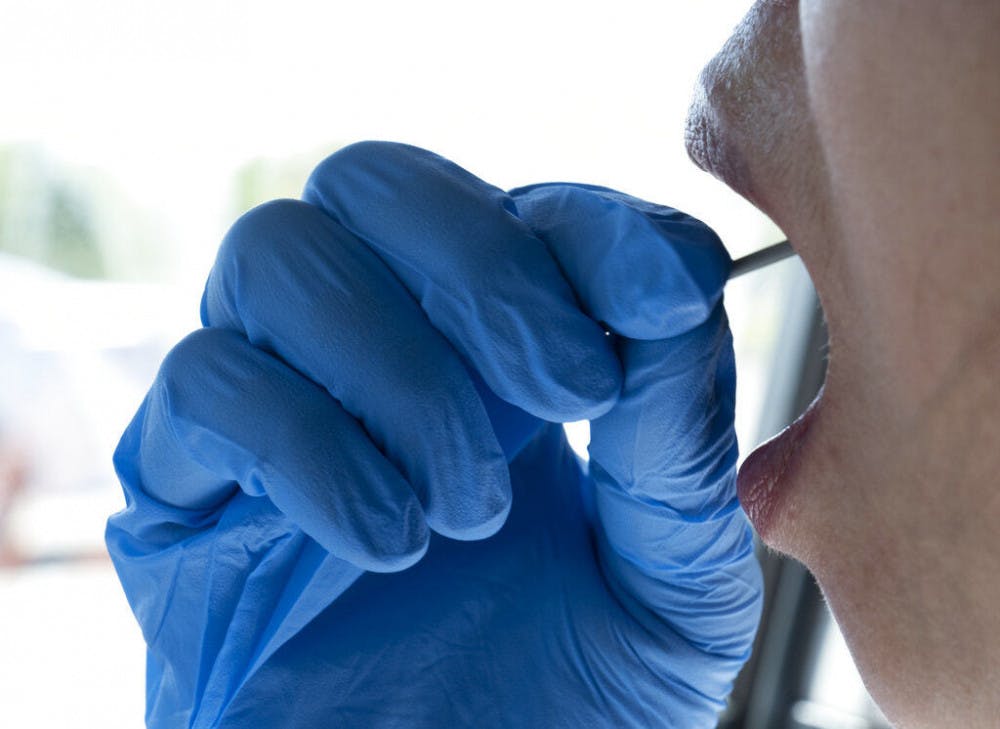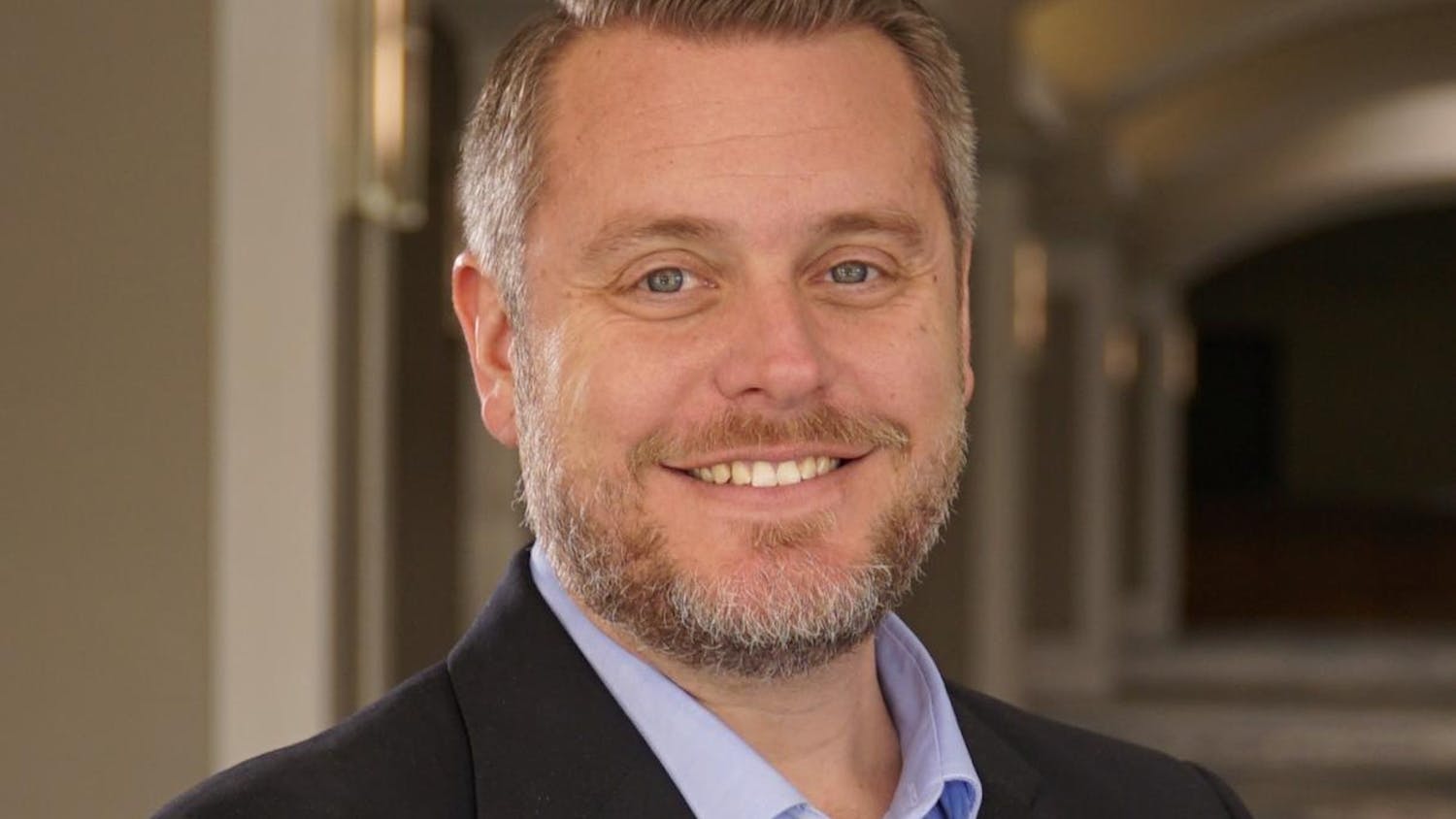The solution to COVID-19 testing shortages can now be found in a strip of paper, according to two UF researchers.
Piyush Jain, a UF chemical engineering professor, and Long Nguyen, a 28-year-old UF chemical engineering graduate student, say they have developed a COVID-19 test that can be administered at home. Using saliva and a paper strip, the test tells users if they are infected with the virus in about an hour, Jain said.
The pair hopes to make the test available before the end of the summer, and they are currently talking to manufacturers, Jain said. He said they aim to make it accessible worldwide and cost $1 to $2.
Jain and Nguyen, his graduate assistant, originally began creating the testing system to detect genetic diseases like HIV, prostate cancer and hepatitis C, he said. They started eight months before the World Health Organization declared COVID-19 a public health emergency of international concern.
On March 17, Jain received a text message from Nguyen around 8 p.m. with the simple phrase, “It worked.” The text, along with a photo of a positive-result paper strip, meant that their COVID-19 test was successful.
“That night, when it was going the way I expected it to, I was jumping because I found something,” Nguyen said.
After they obtain patient samples of saliva, the researchers can begin testing them and apply for approval from the US Food and Drug Administration, or FDA. Approval usually takes six months when under a priority review, but the administration has begun expediting COVID-19 tests, according to its website.
The two said they are motivated to keep the cost for the product as low as possible while maintaining the accuracy and accessibility of the test.
“I’m feeling empowered in being able to give back to the community, which is something I have been wanting to do,” Nguyen said.
The test takes about 45 minutes to an hour to deliver results and is simple enough for anyone to use, Jain said.
It uses their CRISPR-ENHANCE system, which is a genetic engineering tool used to edit, or cut, the selected DNA. The two were working on detecting other diseases before modifying it for COVID-19, as CRISPR can be redesigned to target any genetic disease, Jain said.
Nguyen proposed switching their focus to COVID-19 when it became more prevalent in January.
Although CRISPR has already been used to detect COVID-19, Jain said their system is faster. The first CRISPR-based test for coronavirus was approved by the FDA in early May.
The first step in the researchers’ at-home test is to pour water that is 140 to 158 degrees Fahrenheit up to the fill line of the provided cup. Next, spit into the provided tube, seal it, place it in the cup and wait 30 minutes.
The tube contains chemicals that open cells in the saliva, including any coronavirus particles, converts them from RNA to DNA and then multiplies them, which makes the virus detectable, Jain said. This process is similar to one that happens in the test currently used for COVID-19, the CDC’s authorized RT-PCR test, which uses a sample swabbed from the nasal passage.
After waiting 30 minutes, transfer the sample into a second tube containing the CRISPR-ENHANCE test, designed by Jain and Nguyen. Let the tube rest at room temperature for 15 to 20 minutes, and then place the provided paper strip into the tube.
Within 30 seconds, the results from the exam will begin to appear. Similar to a pregnancy test, if two bands appear, it is positive. If one appears, it is negative.
Jain said he hopes to provide test takers with a way to photograph their results and upload them to a server, such as MyUFHealth or an app, so it can be analyzed by a health care provider to confirm the results.
In March, the two found the lab short-staffed because of restrictions to minimize the spread of COVID-19, Nguyen said. On Friday, they were approved to add one more person to their lab, allowing them to now have three people working in-person.
They hope to get approval for more people in the lab in the near future, when campus becomes more accessible.
The sooner the test is implemented, the more people it can help, Jain said. People who test positive can stay home, and people who test negative can return to work, he said.
“You are not only saving your life, but you are saving other people's lives if you are detecting it early,” Jain said.
In this Wednesday, May 6, 2020 photo a woman swabs the inside of her mouth during a self administered coronavirus test at a drive through testing site in a parking lot in the Woodland Hills section of Los Angeles. The city of Los Angeles is providing free coronavirus tests to anyone who wants one regardless of whether they have symptoms. The offer reflects a parting with state guidelines after the mayor partnered with a startup testing company. The test the city is offering is easier to administer and doesn't require the scarce supplies that have created bottlenecks for expanded testing across California. (AP Photo/Richard Vogel)






